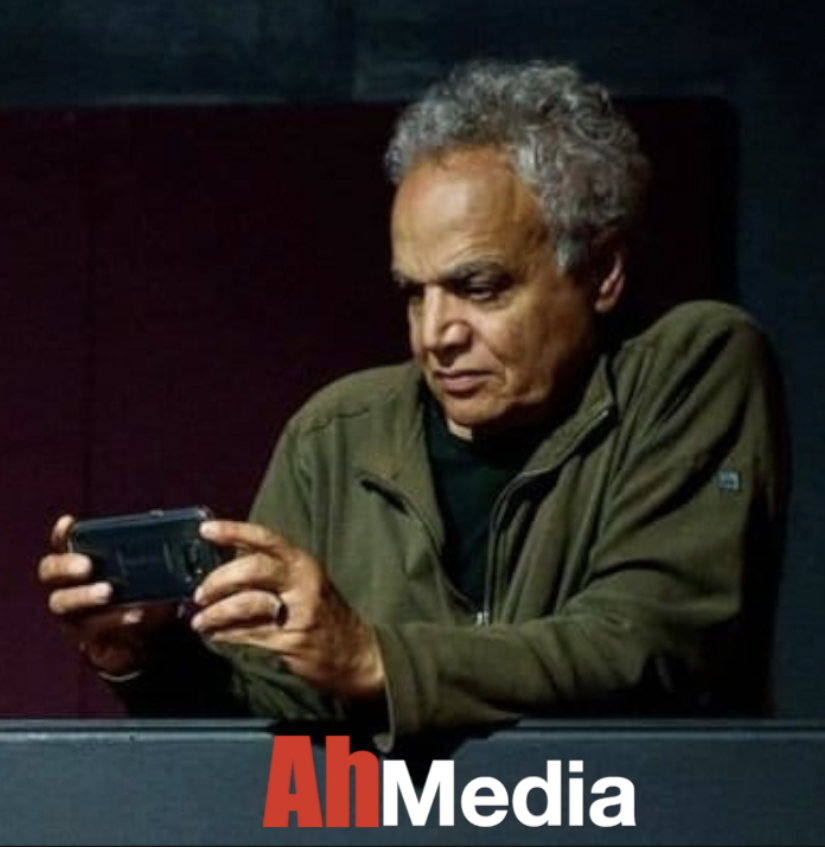A few years ago and as an Egyptian Muslim living in America, I celebrate the holy month of Ramadan during the winter month of December — fasting during the shortest days of the year it was a blessing from the sky. As a Muslim who has been married to an American woman for 20 years, I wanted to celebrate Ramadan and Christmas at the same time. Wow, I thought to myself, what an occasion: our two religious celebrations combined into one magic evening in my house, an evening of transformation that would symbolize our great, diverse life in America. A Ramadan-Christmas dinner would bring a real meaning to our two rich cultures.
Then came the sound of my wife’s warning: “We usually celebrate Christmas at my parents’ house . . . we can always invite them to celebrate the Ramadan-Christmas evening with us this year,” she added with a smile.
Invite your parents to our house? Your parents, who each time they visit spend months recovering from clutter shock? Honey, I screamed, this is like inviting the U.N. Special Commission WMD inspection team in Iraq! They come, they inspect, and then they give you a lengthy report of noncompliance. We are talking about a rigorous inspection of our house, then lengthy telephone calls of violations.
Your parents, whom I love dearly, have a talent for pointing out the most minute imperfection in our house. And they look at it as not just un-American but as a sign of mental illness. If they come, we have to declare half of our house a no-fly zone.
Your parents, I pleaded, go to great lengths to mispronounce my family’s names, as if it is their way of Americanizing them. Even our own daughter, whom they madly love and cherish — her biblical name Sara was not spared and became “Saaara,” and my own name Tharwat became “Somewat.”
To keep peace in the family, and in the spirit of the holidays, I finally agreed to have a Ramadan-Christmas dinner with my in-laws in our house. First, to get ready for the UNSCOM inspection team, I would have to make some changes in the menu.
First, there wouldn’t be any Egyptian food of mass destruction, or any garlic dishes that could constitute chemical warfare on the dinner table. That meant getting rid of my homemade pickles. And forget about my favorite Egyptian national dish, mulloklicia with rabbits, which, my wife protested, has too much garlic. “Besides, rabbits are our cute Easter bunnies,” she explained with a shrug. It is ironic that people in the East don’t share the same feeling toward these cute eastern bunnies.
After two weeks of ethnic food cleansing in our house, we finally were ready for our Ramadan-Christmas dinner. Thanks to our President for not invading a Moslem country and not spoiling our dinner.
At the table, it was reassuring to see that some of my favorite Ramadan dishes had survived the inspection process. There was a sense of harmony and understanding.
My homemade katife and konaffa dessert dishes sat side by side with the fruit cake and apple pies. My homemade fattah dish peacefully coexisted with the turkey stuffing. On the tree, Ramadan lantern ornaments cheerfully danced with Christmas ornaments.
We made sure that we started eating at Iftar’s time (breaking of the fast meal). As the in-laws met the outlaws together at the same dinner table, and as I patiently waited to break my dawn-to-dusk fast, my mother-in-law did what she usually does when we eat at her house. She asked us to pray, a prayer that usually involves asking God to take care and bless the relatives who were not invited to dinner in the first place.
When I was growing up in a family of eight children, we didn’t go into a great length of praying every time we ate; there was a brief whispering of God’s name, the merciful and the most compassionate, then a quick jump to the serious business of gobbling the food before it was all gone.
As I was refraining from exercising my First Amendment right about the long dinner prayer, something wonderful happened to me. Spending Ramadan here in my new home America usually brings memories of the past, of my family back home, of my mom and dad, who passed away a few years ago. Sitting at the table with everyone else, wondering about my missing family and listening to my mother-in-law’s routine dinner prayer, I remembered that my mom used to ask us to pray — not because it is a religious requirement, but to slow us down a little before we started grabbing at the food.
As I looked across the table at my mother-in-law, I saw my mom’s face, and I even joined in the prayer: “AAAAmen.”
After enjoying our Ramadan-Christmas dinner, we proceeded to the opening of our Christmas gifts. My first gift was from my daughter, and there was a note on the box that said, “From Sara to the best dad in the world.” In the box was a can of my rejected Egyptian fava beans. It was the best gift I ever had.
Ahmed Tharwat, Minnetonka, is host and producer of BelAhdan, a Middle Eastern television variety show in the Twin Cities, which airs at 10:30p.m. Sundays on Ch. 17.
